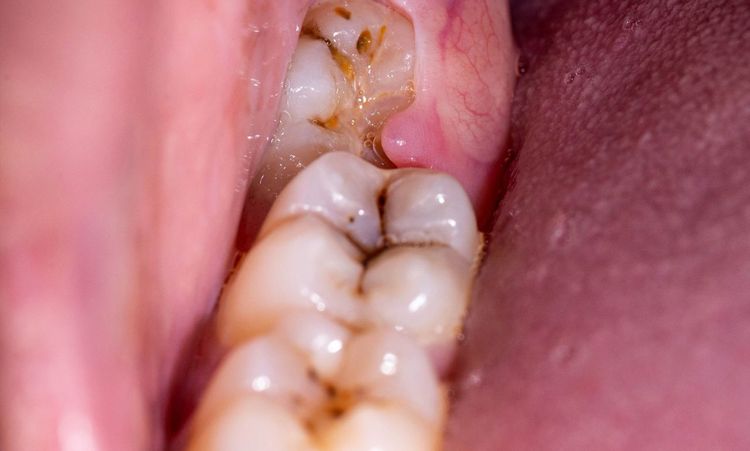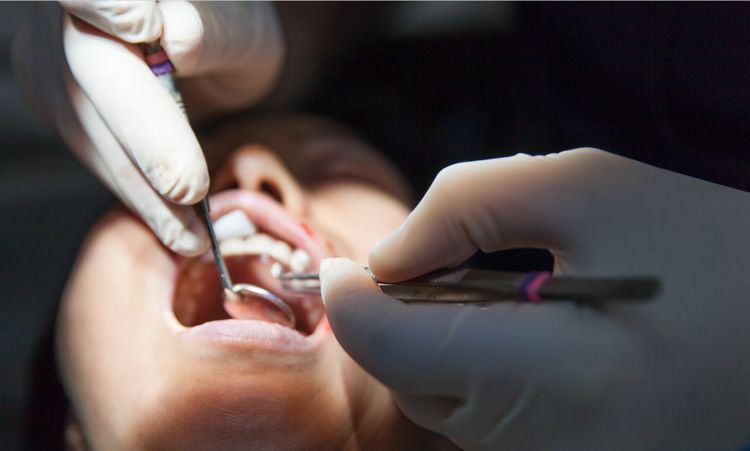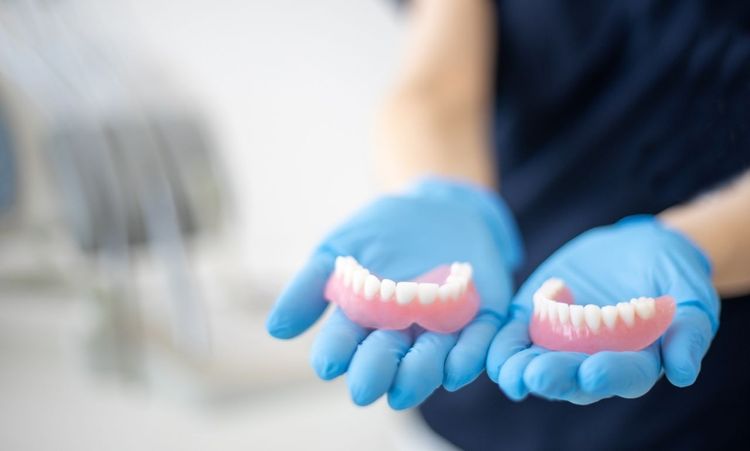When you think of wisdom teeth, do you picture a painful procedure or a subtle shift in your smile? Many people wonder, "Does removing wisdom teeth change your face?" Let's dig deep into the fascinating world of wisdom teeth and how removing them could potentially change your facial structure.
Overview of Wisdom Teeth
What Are Wisdom Teeth?
- Wisdom teeth are the last set of molars that usually emerge between ages 17 and 25.
- Also called third molars, they were essential for our ancestors' diet of roots, nuts, and raw meat.
- Nowadays, with our diets becoming softer and our jaws generally smaller, many people face issues when their teeth try to squeeze in where there's insufficient space.
- Unlike other teeth, wisdom teeth tend to have unpredictable growth patterns. Sometimes, they can grow at odd angles or fail to erupt fully, leading to complications.
Common Issues Associated With Wisdom Teeth

- Crowding: Wisdom teeth often lead to crowding, pushing neighboring teeth out of alignment. This crowding can negatively impact the overall structure of your dental arch and cause previously straightened teeth to shift.
- Impaction: Sometimes, wisdom teeth get stuck beneath the gum tissue or within the jawbone. This is called impaction and can lead to pain, infections, cysts, and even damage to adjacent teeth. Impacted wisdom teeth can become a breeding ground for bacteria, leading to infections that may spread to other body parts.
- Cavities and Gum Disease: If partially erupted, wisdom teeth can create pockets where food particles and bacteria collect, leading to cavities, gum inflammation, and infections. Proper cleaning of these teeth can be difficult, making them more susceptible to decay.
- Jaw Pain and Stiffness: The pressure exerted by incoming wisdom teeth can cause jaw pain and stiffness. This discomfort can extend to headaches and even affect the alignment of your jaw over time.
Effects of Wisdom Teeth Removal on Facial Appearance
Temporary Changes Post-Surgery
- Facial Swelling: After wisdom teeth removal, temporary swelling occurs. This swelling is a natural response to surgery and usually subsides in a few days, but your face might look puffier or rounder than usual during this period. The degree of swelling can vary depending on how complex the extraction was.
- Minor Swelling and Bruising: Along with swelling, bruising around the jawline can temporarily give an impression of altered facial structure. The discoloration can vary from mild redness to more intense purple or yellowish bruising, depending on how your body reacts to the surgical trauma.
- Cheek Puffiness: For many, puffed cheeks might resemble a chipmunk. This is normal and goes away as healing progresses. It may also make your cheeks appear fuller during the initial days, giving the illusion of facial weight gain.
- Temporary Jaw Stiffness: Limited mouth opening, also known as trismus, can occur after surgery. This stiffness gives the jaw a stiffer appearance and restricts facial movements. This stiffness usually improves as inflammation reduces.
Potential Long-Term Changes
- Jawline Definition: Does removing wisdom teeth change your face long-term? In some cases, yes. For some people, there might be a slight shift in jawline definition. Without wisdom teeth pressing against your bone structure, your jaw may become more natural, allowing for better jaw alignment and symmetry. This effect can make your lower face appear more refined.
- Soft Tissue Adjustment: Removing these molars can lead to subtle adjustments in soft tissue—the gums, cheeks, and facial muscles—which may change how your face appears. The lack of pressure from wisdom teeth against the jawbone might cause a minor reshaping of the surrounding soft tissue, especially if there was significant impaction before the extraction.
- Alveolar Bone Resorption: When wisdom teeth are removed, the alveolar bone (the part of the jawbone that holds the teeth) might resorb slightly, causing slight changes in the facial structure. However, these changes are usually so subtle they're hardly noticeable to others. The bone tissue reshapes itself to close the gap left by the extracted tooth, which could contribute to a more even jawline.
- Reduction in Facial Fullness: Some people report that their faces look slimmer after removing wisdom teeth. This could be due to reduced swelling of the gums and cheeks over time or to the bone and soft tissue settling into a new, balanced position.
Factors Influencing Facial Changes
- Age: Younger individuals tend to have less noticeable changes because their bones are still developing. The younger the patient, the faster and more effective the bone and soft tissue recovery is, which minimizes visible changes.
- Jaw Shape: The fundamental shape of your jaw plays a big role in how your face might change after extraction. If you naturally have a prominent jaw, the removal may emphasize or diminish certain aspects of it, but the overall shape remains intact.
- Surgical Procedure Type: Whether it was a simple extraction or a more extensive procedure involving bone removal, it can influence the aftermath on facial appearance. More invasive procedures involving bone removal may lead to temporary changes that could last longer.
- Soft Tissue Characteristics: People with thicker soft tissue (cheeks, gums) might notice more visible changes compared to those with thinner tissue. Thicker soft tissue tends to react more to swelling and may alter the appearance of your face during the healing phase.
- Diet and Weight Loss: Minor weight loss often occurs during recovery due to difficulty eating. This can contribute to changes in facial appearance, such as a slimmer or more hollowed look.
Benefits of Wisdom Teeth Removal
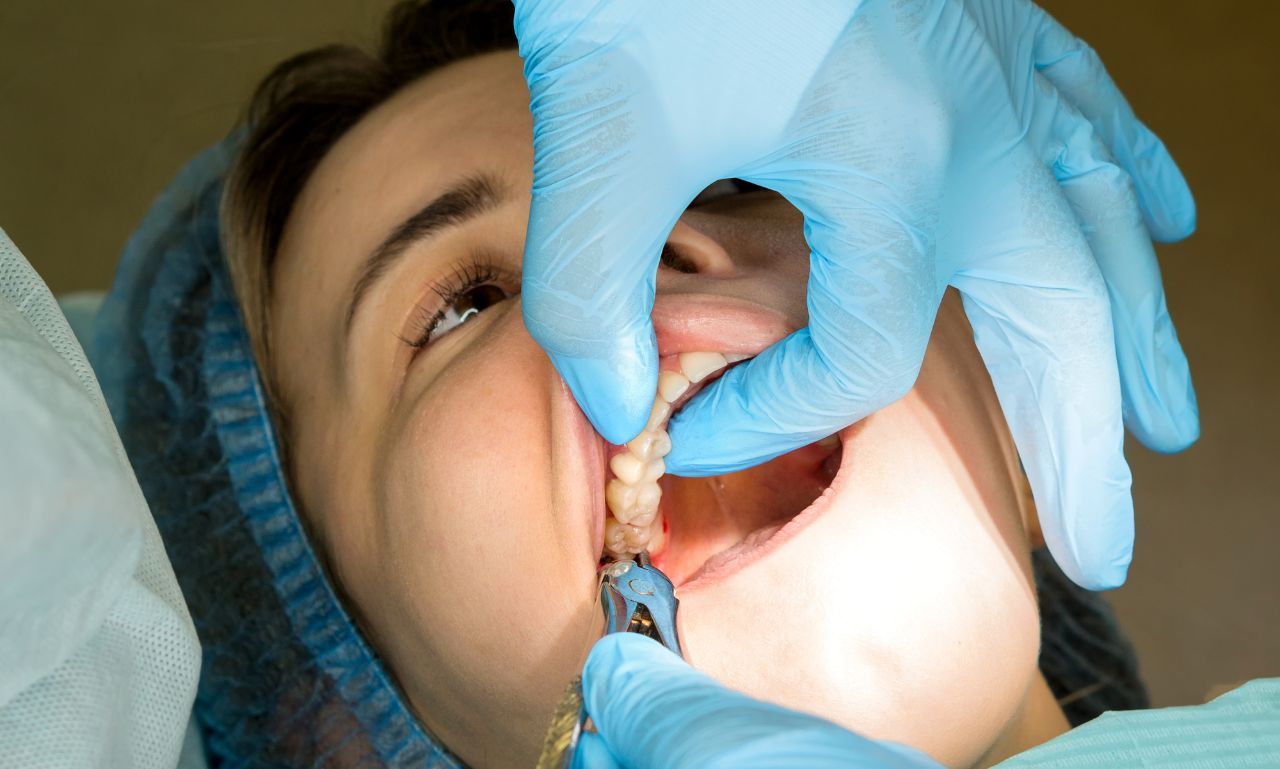
Improved Oral Health
- Reduced Crowding: Wisdom teeth removal can prevent misalignment of adjacent teeth, helping you maintain a balanced and beautiful smile. This also helps prevent future orthodontic problems that may require braces or other corrective treatments.
- Gum Health: Wisdom teeth can cause gum inflammation, which may eventually lead to periodontal disease. Removing them reduces the risk of bacterial buildup beneath the gum tissue, promoting overall gum health.
- Avoiding Tooth Damage: Impacted wisdom teeth can damage adjacent teeth by exerting pressure. Removing these problematic teeth prevents future complications, such as cavities in neighboring teeth or even root damage.
Reduced Risk of Cavities
- Bacteria and Food Buildup: Wisdom teeth, particularly those partially erupted, are prone to food entrapment. This creates a haven for bacteria, increasing the risk of tooth decay and gum disease. The entrance of bacteria can lead to significant problems if left untreated, including the development of cavities and tooth loss.
- Better Accessibility: Removing these teeth makes it easier to clean the surrounding molars, reducing the overall risk of cavities and maintaining better oral hygiene. Improved dental care accessibility also prevents the formation of plaque and tartar in those hard-to-reach areas.
Better Bite Alignment
- Crowded Space: Wisdom teeth can push the rest of your teeth out of alignment, leading to an uncomfortable or uneven bite. Their removal often helps prevent and correct alignment issues, ensuring a more comfortable and natural bite.
- Pressure Relief: The lack of pressure from wisdom teeth allows adjacent teeth to remain in their natural position, supporting a properly aligned bite and contributing to a healthier jaw alignment overall.
Enhanced Gum Health
- Gum Tissue Relief: The removal reduces gum tissue irritation and inflammation, improving gum health overall. This is particularly important because inflamed gum tissue can lead to gum disease and a host of oral health problems if not managed properly.
- Reduced Risk of Infection: Removing wisdom teeth lowers the risk of pericoronitis, an infection that occurs when bacteria become trapped between a partially erupted wisdom tooth and the gum tissue.
Understanding the Procedure
Overview of the Extraction Process
- Initial Consultation: It starts with a consultation, where your oral surgeon will assess X-rays to determine the position of the wisdom teeth. This initial assessment helps develop a custom-fit treatment plan to remove the teeth safely.
- Pre-Surgery Preparation: A custom-fit treatment plan is made, considering factors like age, tooth roots, and jawbone density. Your oral surgeon will discuss the best anesthesia options and any potential risks or complications involved.
- Extraction Procedure: The surgery might involve cutting the gum tissue and sometimes removing a bit of bone to access the wisdom tooth. If the tooth is deeply embedded, it may need to be sectioned and removed in smaller pieces.
- Bone Graft (If Necessary): In some cases, a bone graft may be performed to help preserve the jawbone structure. This procedure fills in the area where the wisdom tooth was removed, promoting proper bone healing and maintaining facial bone structure.
Anesthesia and Pain Management
- Types of Anesthesia: The wisdom teeth extraction procedure usually involves local anesthesia, IV sedation, or general anesthesia. The choice of anesthesia depends on factors such as patient anxiety, the number of teeth being removed, and overall health.
- Pain Management: Counter pain relievers are prescribed for post-operative pain. Most people experience minimal pain that subsides after a few days. If necessary, stronger prescription painkillers can be provided to help with severe discomfort.
- Managing Anxiety: Sedation options are available for patients who experience high levels of anxiety. Nitrous oxide (laughing gas) or oral sedatives may be used to help patients feel more relaxed during the procedure.
What to Expect During Recovery
- Initial 24-48 Hours: Swelling is most noticeable during this period. An ice pack and prescribed medications can help manage swelling. Keeping your head elevated while resting can also help reduce swelling.
- Healing Process: Soft foods, avoiding chewy foods, and following aftercare instructions all contribute to a smooth recovery process. The dental alveolus (tooth socket) takes time to heal, and proper care must be taken to avoid dislodging the clot that forms after extraction.
- Jaw Impact: Minor jaw pain or stiffness is common, but these symptoms improve within a week or so. Practicing gentle jaw exercises can help regain mobility more quickly.
- Blood Clot Formation: It is essential for a blood clot to form in the socket where the tooth was extracted. This clot helps protect the bone and nerves during the healing process. Activities such as sucking through a straw or smoking can dislodge the clot, leading to a painful condition called dry socket.
Aftercare Essentials
Follow-Up Appointments
- Monitoring Healing: Follow-up appointments ensure that the healing process is going well and check for any signs of infection or complications. During these visits, your dentist will assess the extraction site and remove any remaining sutures if needed.
- Removal of Stitches: If non-dissolvable stitches are used, they will be removed during these visits. Dissolvable stitches typically break down on their own within one to two weeks.
Managing Swelling and Discomfort
- Ice Pack Application: Applying an ice pack to the affected area for 20-minute intervals helps manage swelling during the first 48 hours. Alternating ice application can provide relief from inflammation and reduce bruising.
- Pain Medication: To help manage discomfort, take all medications as directed by your dentist. Pain medications can be over-the-counter options such as ibuprofen or prescription options based on the severity of pain.
- Saltwater Rinses: Starting 24 hours after surgery, gently rinsing with warm salt water can help keep the extraction site clean. This helps prevent bacteria buildup and aids in the overall healing process.
Diet Recommendations During Recovery
- Soft Foods: In the days following surgery, it is recommended to stick to soft foods like yogurt, mashed potatoes, and smoothies. These foods are rich in nutrients and easy to swallow, providing comfort while ensuring you get essential vitamins and minerals.
- Avoiding Spicy and Hard Foods: Spicy foods can irritate the extraction site, while hard foods can dislodge the healing clot, leading to a dry socket. Avoid foods like nuts, chips, and raw vegetables until the extraction sites fully heal.
- Hydration: Staying hydrated is essential, but avoid drinking through a straw, as the suction can dislodge the healing clot. Drinking water and staying hydrated help flush out bacteria and promote faster healing.
Myths and Facts About Wisdom Teeth Removal
Debunking Common Misconceptions
- "Wisdom Teeth Removal is Always Necessary": This is not true. If wisdom teeth grow without causing issues, they can be left in place. Regular monitoring through dental X-rays can help determine whether they need removal in the future.
- "Removal Always Changes Your Face": While minor changes can occur, the fear of a drastically altered face is largely exaggerated. The majority of people notice little to no significant difference in their facial appearance after the removal of wisdom teeth.
- "It Affects Your Smile Negatively": Removal often helps protect the alignment of your teeth, leading to a more confident smile. Removing wisdom teeth reduces the risk of crowding and ensures that your smile remains even and aligned.
Clarifying Cosmetic Implications
- Facial Weight Concerns: Does removing wisdom teeth change your face in terms of weight loss? Sometimes, minor weight loss can occur post-surgery due to dietary changes, but this is not directly related to facial structure. Any perceived facial slimming is more likely due to reduced puffiness or post-surgical diet adjustments.
- Sunken Cheeks Myth: Some believe that extracting wisdom teeth leads to sunken cheeks. In reality, sunken cheeks are more closely tied to natural aging, weight loss, and individual bone structure than to wisdom teeth extraction. The removal itself does not remove enough bone or tissue to cause a sunken appearance.
- Youthful Appearance: Some patients report a more youthful appearance after removing their wisdom teeth, likely due to reduced puffiness or better facial symmetry. The absence of infection and chronic inflammation may also contribute to a healthier overall look.
Consultations With Dental Professionals
Importance of Professional Advice
- Individual Assessment: Every mouth is different. Consulting a dental professional allows for a tailored approach that fits your unique dental health needs. Your dentist can evaluate whether your wisdom teeth pose a threat to your dental health and whether extraction is the best course of action.
- Considering Risks and Benefits: A dentist will help you weigh the potential risks versus the benefits of wisdom teeth removal. Depending on the positioning of the wisdom teeth and the space available, your dentist can determine if it is best to proceed with surgery.
- Customized Treatment Plan: Not everyone needs the same approach to wisdom tooth extraction. A dental professional will customize the treatment plan to ensure your needs are met, and the extraction is performed safely.
Questions to Ask Your Dentist
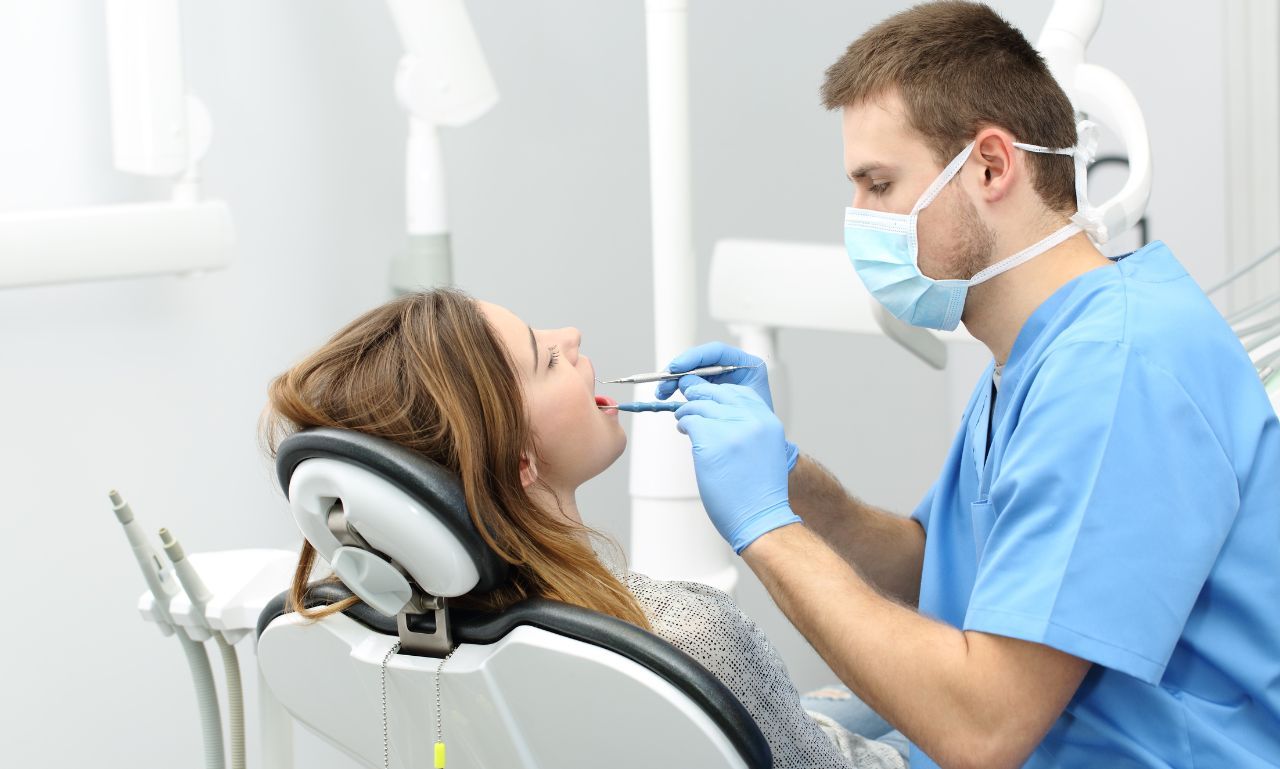
- Do My Wisdom Teeth Need Removal?: Always ask if removal is necessary or if the wisdom teeth are positioned in a way that will not cause future complications. In some cases, wisdom teeth may grow in straight and healthy, making removal unnecessary.
- What Type of Anesthesia is Best for Me?: Ask about the different anesthesia options available depending on your comfort level. Understanding what to expect during surgery can help alleviate anxiety.
- How Long Will Recovery Take?: Understanding the recovery timeline helps you plan work, school, or other responsibilities accordingly. Recovery can vary depending on how many teeth were removed and the complexity of the procedure.
- What are the Potential Complications? Knowing the potential risks and complications beforehand can help you prepare for recovery and avoid activities that could slow the healing process.
Conclusion
While the idea of wisdom teeth removal can be daunting, understanding its impact on your facial appearance and overall oral health can help alleviate concerns. The answer to "Does removing wisdom teeth change your face?" often comes down to subtle, almost unnoticeable changes. The primary purpose of wisdom teeth extraction is to improve your dental health, prevent potential complications, and ensure a balanced and confident smile for years to come. Consult your dentist for a personalized evaluation and ensure your dental health remains in top shape.
